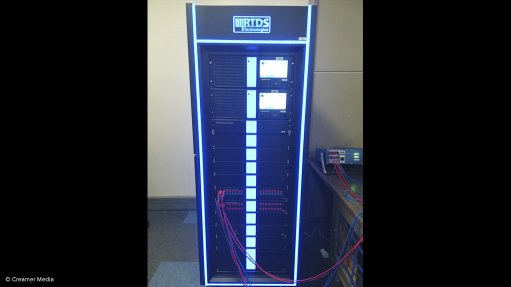
Photo by: Creamer Media's Tasneem Bulbulia
The University of South Africa’s (Unisa’s) College of Science, Engineering and Technology on Tuesday launched a real-time digital simulation platform for power hardware in the loop and protection and automation equipment donated to it by Schweitzer Engineering Laboratories.
Lately, some faculties of engineering have embraced the use of simulation packages as a substitute for experiments in laboratories, Unisa explained.
Simulation experiments provide opportunities to investigate a range of scenarios.
However, the main challenge with simulation exposure is that students are removed from the realities of the work environment.
Engineering education requires students to be grounded in theoretical principles, practical experiments, hands-on experience, and skills to solve problems in the real world.
In view of this, Unisa identified a need for a platform that combines best practices in simulation and real-life experimentation to train students and conduct research.
A real-time digital simulation platform for power system hardware in the loop combines the best of both simulations and real-life experiments. It provides a relatively safe, flexible, and cost-effective environment to study the interaction between various power system components and active controllers without posing any risk to power utilities.
The platform is expected to considerably improve the department’s teaching and research in power systems operation, protection, substation automation, smart grid and renewable energy sources integration.
The composition and configuration of the platform enables a limited number of students and researchers to conduct remote experiments in the department’s laboratories through a virtual private network.
It is expected that the system will help bridge the skills gap in the country.